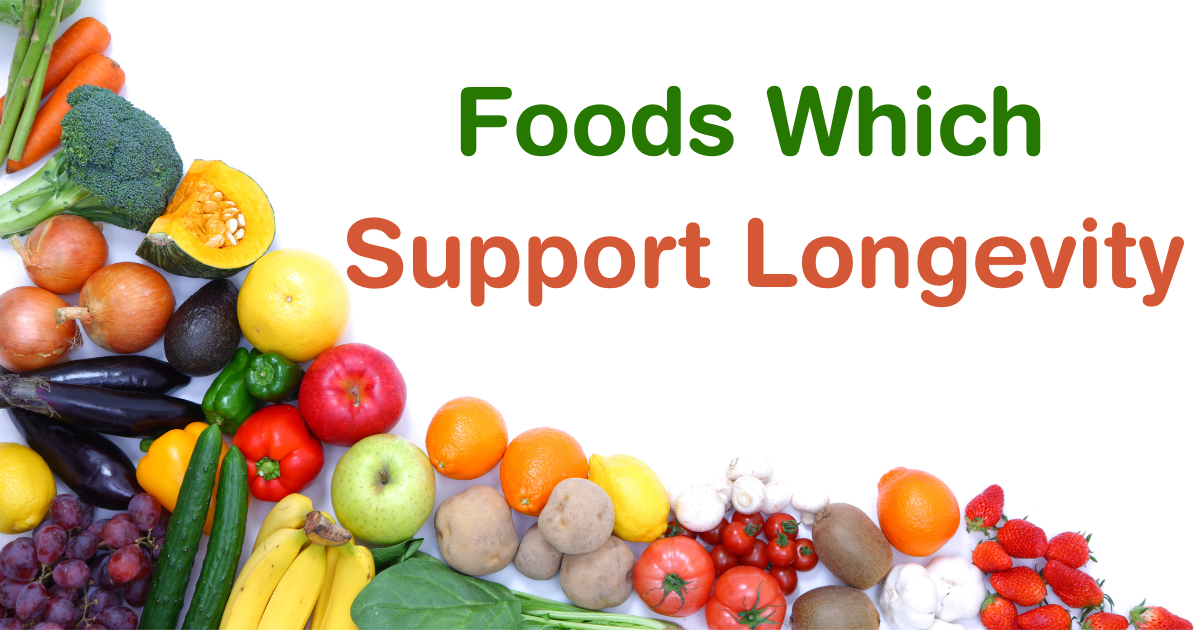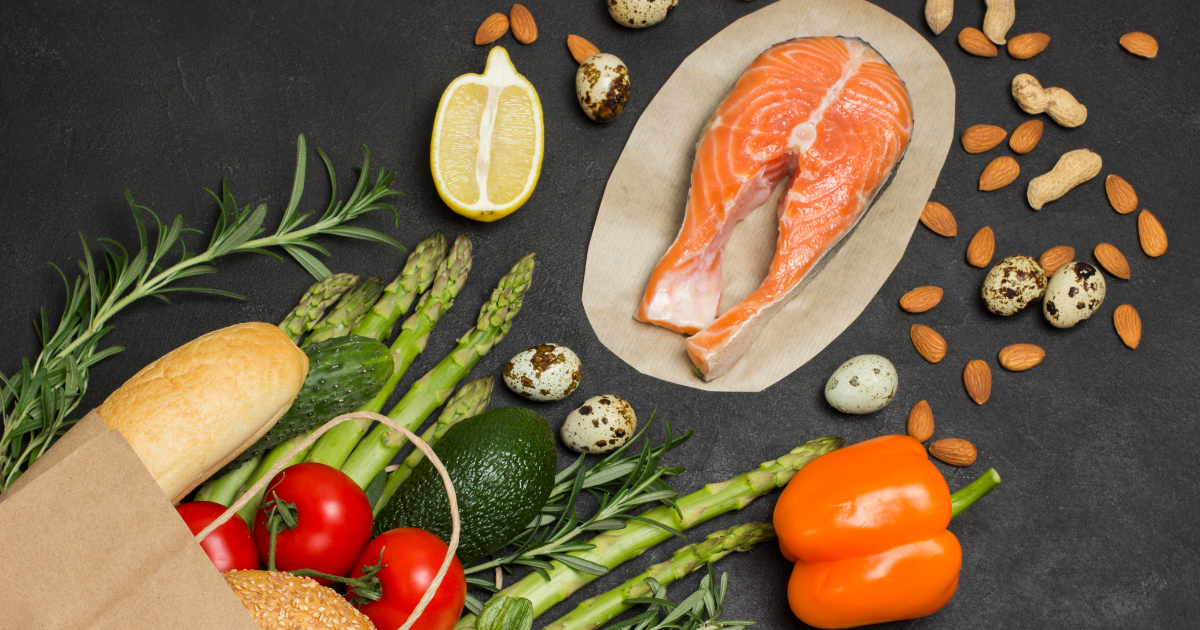What You Eat Can Support Longevity
In order to maintain good health over time, it is important to eat a well-rounded diet rich in critical nutrients and vitamins. Inflammation reduction, heart health improvement, immune system strengthening, and illness prevention are just some of the benefits of eating nutrient-dense meals. Consuming a balanced diet rich in a wide variety of nutritious foods has been shown to promote good ageing by supplying the energy required to maintain an active lifestyle and engage in meaningful social interactions.
Consuming a diet rich in antioxidant-rich fresh fruits and vegetables is a key component of a diet designed to promote longevity. Also, the complex carbs found in whole grains help keep blood sugar levels steady, keeping you energised for longer periods of time. Omega-3 fatty acids, found in healthy fats like fish oil and olive oil, have been demonstrated to improve cognitive performance and decrease inflammation. Nuts, peanuts, legumes, eggs, and lean meats are all good examples of protein-rich foods that can help you build muscle and maintain a healthy metabolism.
Finally, drinking plenty of water every day is crucial to sustaining excellent gut health and, by extension, good overall health. In addition to aiding in nutritional absorption from food sources, the elimination of toxins from the body is facilitated by maintaining an adequate water intake.
Fruits, Nuts, and Seeds as Superfoods to Support Longevity
Because of their high levels of antioxidants, berries are often considered a superfood. Including fresh or frozen berries into your diet is a great way to increase your daily nutrient intake. Raspberries, blueberries, blackberries, and other berries are a great source of antioxidants, vitamin C, fibre, and minerals like manganese and potassium. Getting the full range of health benefits from berries requires eating a wide array of berry colours.
Nuts, which include healthful fats, proteins, and dietary fibres, are another type of superfood. Nuts like almonds, walnuts, macadamias, and cashews are delicious and nutritious alone or in trail mixes. Nuts not only supply our bodies with nourishment, but also offer anti-inflammatory characteristics that help reduce inflammation.
Seeds like chia seeds, flax seeds, and pumpkin seeds are a great source of vitamins E and B complex, as well as the vital fatty acids omega-3 and omega-6. These nutrient-dense foods make it simple to incorporate numerous health benefits into your regular diet. They provide a nutritional boost when added to smoothies or salads, and they provide a quick rush of energy when eaten as a snack at any time of the day.
Nutritional Fats That Are Good for Your Heart and Support Longevity
Cholesterol and the risk of cardiovascular disease can be lowered by selecting heart-healthy oils. Vegetable oils like corn oil, sunflower oil, and soybean oil are rich in polyunsaturated fats, which are great for your cardiovascular system. Certain vegetable oils contain omega-3 fatty acids, which have been associated with better health and less inflammation.
Canola oil’s monounsaturated fats may also offer protection against cardiovascular disease. If you want to keep your cholesterol levels in check, use these oils instead of solid fats like butter or margarine when cooking or baking. Coconut oil is another good option because it includes lauric acid, an antimicrobial compound that promotes healthy skin.
Olive oil is a popular option because of its high antioxidant and polyphenol content, which helps reduce systemic inflammation and boost good cholesterol levels. Make sure there are no bad sweeteners or additives in the oil you use.
Vegetables and Fruits High in Antioxidants to Support Longevity
Consuming antioxidant-rich fruits and vegetables is one way to ensure a long and healthy life. Antioxidant levels can be increased by eating certain fruits, such as blueberries, blackberries, cherries, grapes, citrus fruits, pomegranates, cranberries, and strawberries. Spinach, kale, Brussels sprouts, and broccoli are all fantastic vegetable choices as well.
Nuts, such as almonds, are a great source of vitamin E, an antioxidant that can stave off cell damage produced by free radicals. The high antioxidant capabilities of these foods are best utilised by eating a wide variety of them.
Oregano, which is high in antioxidants, and rosemary, which contains carnosic acid, anti-inflammatory qualities, and may reduce the risk of some diseases, can be added to recipes as a dry herb. Lastly, make sure to round out your diet with some healthy fats, such as the monounsaturated fats found in avocados and olive oil, which have been shown to reduce cholesterol levels and promote cardiovascular health.
Gluten-Free, Low-Sodium, Whole-Grain, and Legume to Support Longevity
Foods high in fibre, such as whole grains and legumes, are frequently recommended for those interested in increasing their lifespan. Oatmeal, brown rice, quinoa, barley, buckwheat, millet, and many others are all examples of whole grains. They are an excellent source of both dietary fibre and carbs, which can be used as a quick source of energy.
Consuming whole grains on a daily basis has been shown to minimise the danger of gaining excess weight and developing cardiovascular disease. The high protein content of legumes like beans, peas, and lentils is good in maintaining lifespan since it aids in muscle mass building and supplies critical amino acids and minerals like iron, magnesium, potassium, and zinc.
They include dietary fibre, which feeds good bacteria in the digestive tract and keeps everything moving along smoothly. Maintaining good health throughout the course of one’s life, which in turn adds to longevity, requires eating a balanced diet that includes these two food groups.
Probiotics Found in Fermented Foods to Support Longevity
The consumption of fermented foods is essential to a diet that promotes long life. Many studies have shown that consuming probiotics, or the live bacteria that are present in fermented foods, can improve one’s health in numerous ways. They may aid in the growth of good bacteria in the intestines, which in turn may improve digestion and nutrient absorption.
It has been suggested that probiotics can also help with inflammation reduction and mental health enhancement in addition to bolstering the immune system. Fermented foods like kimchi, sauerkraut, and yogurt are full of beneficial bacteria that can improve your health in general. More than that, fermented foods are rich in the micronutrients that are crucial to a long and healthy life.
Minerals like phosphorus and magnesium, and vitamins like B12 and K2 are examples. Consuming them on a daily basis can aid in preserving health into old age by promoting strong bones and warding off deficiencies.
Omega-3 Fatty Acids to Support Longevity
Essential fatty acids called omega 3 fatty acids can be found in foods including fish, walnuts, and flaxseed. The polyunsaturated fats in these foods have several positive effects on health, including lowering inflammation, boosting mood, and supplying energy. Because of their beneficial effects on the body, omega-3 fatty acids are crucial for those who want to live a long, healthy life.
Chronic disorders like heart disease and stroke may also be avoided by following these guidelines. The best approach to get more omega-3 fatty acids into your diet is by eating foods that are high in them. Fresh salmon and herring, as well as canned tuna and sardines, are excellent choices for getting your omega-3s, and they may be eaten on their own or mixed into other dishes.
If you want to get the benefits of omega-3 fatty acids but don’t eat seafood, walnuts are a great vegan substitute. Another delightful method to get your daily dosage of this vital mineral is to add ground flaxseed to smoothies or porridge. You may reap the long-term health benefits of eating foods rich in omega-3 fatty acids by including them in your diet on a regular basis.
According to Nutritionists
Foods high in saturated fat, such as red meat and fatty dairy products, are often discouraged by Dr. Pankaj Kumar, the best dietitian in Delhi. Instead, he suggests people consume more legumes like beans and lentils for protein. In addition, he recommends eating a lot of fruits and vegetables to get the vitamins and minerals you need to be healthy.
Consuming a diet high in fibre from whole grains has been demonstrated to promote health and lower the chance of developing chronic diseases. Finally, Dr. Pankaj recommends cutting back or even getting rid of processed meals to help achieve long-term health objectives. By providing the body with the vitamins and minerals it needs to function at its best over time, a diet that emphasises these foods can help people live longer.
Conclusion
There are some foods that have been shown to promote longevity, and maintaining a nutritious diet is essential for living a long and healthy life. Broccoli and kale are two examples of cruciferous vegetables, which include cancer-fighting compounds, vitamins, and minerals that can help reduce inflammation. Foods rich in omega-3 fatty acids, including salmon, are crucial for maintaining a healthy brain. Antioxidants are found in abundance in berries, beans, and whole grains and can help lower cellular oxidative stress. Eating probiotic yogurt or fermented vegetables also improves gut health by bringing good bacteria into the digestive system, which in turn improves immunity. Lastly, polyphenols, found in herbal teas like green tea and rooibos, have been shown to reduce blood pressure and improve general health. If these items are part of one’s regular diet, improved health and longevity may be possible.







GIPHY App Key not set. Please check settings